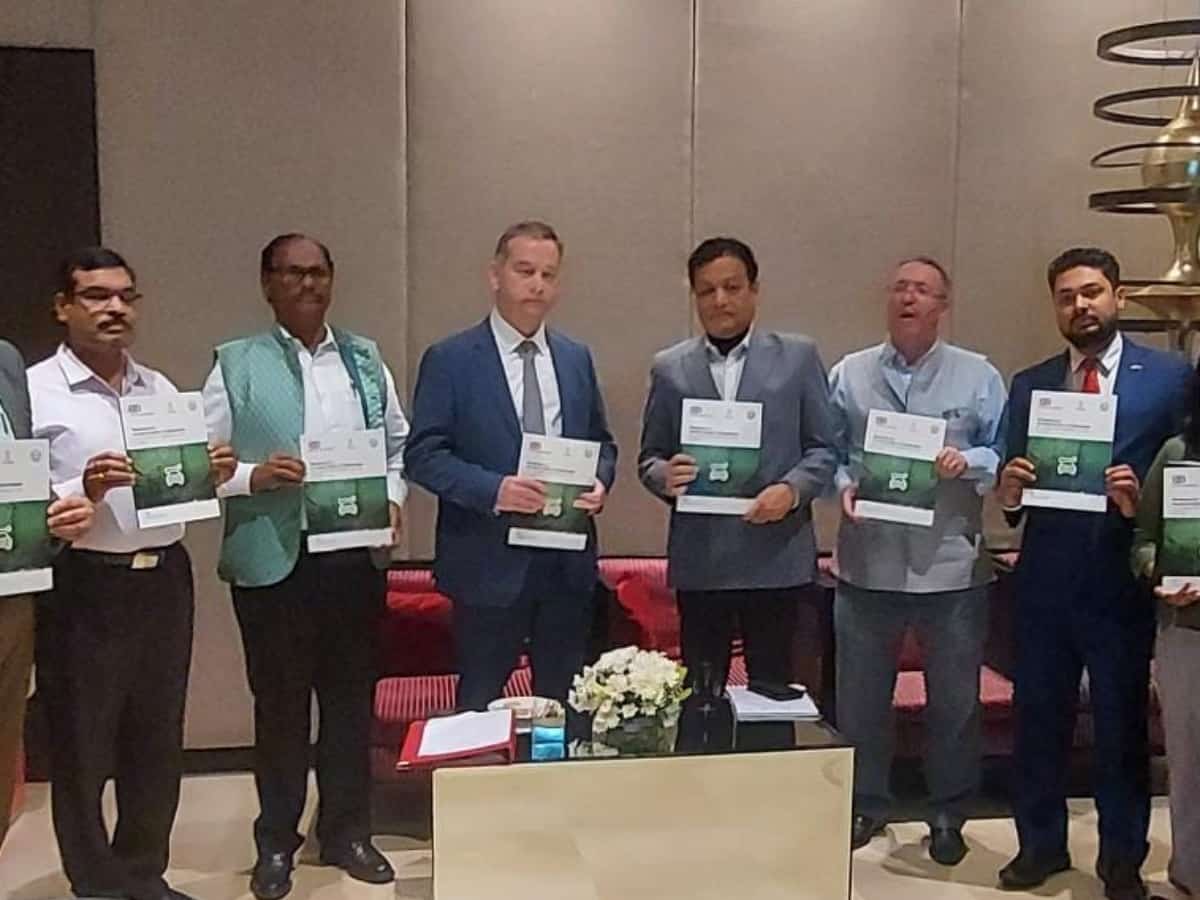
Hyderabad: TSEV, Telangana’s first electric mobility awareness web portal, a collaborative programme between NITI Aayog and the UK government was launched on Sunday.
The Special Chief Secretary to Energy Department, Sunil Sharma along with the cabinet minister of UK Government, Rt Nigel Adams launched the portal at the Westin Hotel in Hyderabad.
The portal has been developed by NITI Aayog under a collaborative knowledge exchange programme with the UK government and as a part of the UK–India Joint Roadmap 2030, signed by the Prime Ministers of the two countries.
TSEV web portal is a dedicated destination to influence users and businesses from Telangana to become a part of the electric vehicle “revolution”. The TSEV web portal aims to complement the e-AMRIT portal on raising awareness on EVs at the state level and sensitizing consumers on the benefits of switching to electric vehicles.
Through this portal, the state government will assist end users and businesses to switch to electric vehicles by providing helpful information on policies and regulations, nearby charging stations, state specific news, announcements and resources.
Telangana State Renewable Energy Development Corporation Ltd (TSREDCO) will add more features and introduce innovative tools to make the portal more interactive and user-friendly. TSEV web portal will be hosted by TSREDCO, the nodal agency for setting up charging stations within the state and facilitating the scale up of EVs.
Special chief secretary Sunil Sharma and Rt Nigel Adams also launched the roadmap report for transformation of Hyderabad to a global EV lighthouse city at the event. The roadmap represents a phased plan for the city of Hyderabad to become a global EV lighthouse city in India and showcases the learning’s from best practices of electric mobility from the United Kingdom.
The report’s findings and recommendations would help attract investments worth INR 30,360 crore, create jobs for 120,000 persons and reduce 45.84MT amount of net CO2 emissions over the vehicles’ lifetime by 2030 for the state of Telangana.



